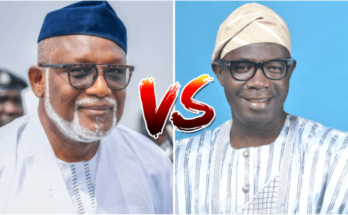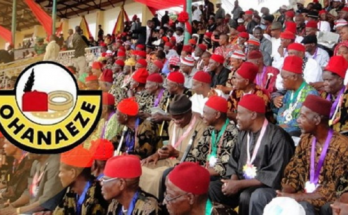
Reactions have continued to trail yesterda’s judgement of the Supreme Court that sacked the All Progressives Congress (APC) Governor-elect in the November 16,2019 gubernatorial election in Bayelsa State.
The Peoples Democratic Party had filed an appeal at the apex court challenging the joint candidature of Lyon and his running mate, Biobarakuma Degi-Eriemienyo, on the ground of alleged certificate forgery.
But the ruling has drawn mixed reactions from legal practitioners. The Guardian yesterday sought the views of some of them.
Constitutional lawyer and author, Chief Sebastine Hon (SAN), noted: “The Supreme Court was, with respect, correct in its decision. The reason is plain enough: Under the constitutional scheme of the 1999 Constitution, one is not qualified to become a governor unless and until he chooses a running mate, who will contest the election with him. The fate of each, therefore, is inextricably intertwined, until they are inaugurated, in which case, each acquires a distinct legal personality and has to personally answer for his good or bad deeds.
“The apex court had settled this in 1999 when Alhaji Atiku Abubakar, after being elected with Mr. Boni Haruna, left for the vice presidency before being sworn in. But then, the rider in the judgment of the Supreme Court is that INEC should issue a certificate of return to the next political party whose candidate scored the majority of votes cast, at least 25% of which must be in two-thirds of the local governments, must be watched closely. If the PDP candidate satisfies these twin conditions, he should be inaugurated. If he does not, the Speaker of the House of Assembly will be inaugurated as the Acting Governor and INEC will conduct a fresh election; but the APC will stand disqualified from contesting in that rerun, since its candidature at the annulled election was, ab initio, a farce.”
To Dr Abiodun Layonu (SAN), “the implication of this judgment is that in calculating the votes to identify who has the 25 per cent spread, all the votes of APC would be discounted. Some people are of the opinion that the PDP candidate did not satisfy the spread, but I cannot tell until INEC determines that.
“The Supreme Court said whoever came second and satisfied the constitutional requirement should be sworn in. Another implication of this decision is that the APC has lost the state completely.
“The Supreme Court said his running mate infected him with a virus, so they are both out. The court also asked that a fresh certificate of return be given to the second runner-up who satisfied the constitutional requirement.
“All David Lyon’s votes would be discounted. Then the 25 per cent vote would be counted based on the remaining vote because once there is a disqualification, the votes are wasted votes.” Senior lawyer, Ebun-Olu Adegboruwa (SAN) held:
“The constitution states clearly that sovereignty belongs to the people. The concept of election is to allow the people choose their leaders freely. We must avoid situations whereby leaders emerge through the courts, as that will be circumventing the will of the people. Let us allow the people to choose their leaders. The fellow who committed perjury was the deputy governorship candidate. So, his ‘sins’ should not have affected his principal. The court should have simply removed him and ordered fresh elections at worst or asked the governor-elect to nominate a new candidate because the outcome of that election is an indication that the people of Bayelsa rejected the PDP totally.
“These tribunal/court cases in Imo, Bayelsa, Zamfara, etc, constitute serious indictment of INEC and the political parties. There is no legacy that the present administration has bestowed upon us as a nation in the area of electoral reforms, but rather things have gotten worse. Having suffered electoral injustice in his previous efforts, it is shocking that the president has retained and continued to benefit from obviously flawed electoral processes.
According to Professor Edoba Omoregie, “It’s difficult to react critically to the judgment, having not read the full judgment. However, if media reports are anything to go by, I think the judgment raises so many questions. From a strict democracy considerations, one wonders whether the judgment accords with the idea of majority rule. How possibly democratic is it for a candidate who won majority votes in an election to be denied the fruits of his victory, and the people denied his services, because of a technical issue of the qualification of his running mate? The qualifications for gubernatorial office are set out in the constitution. Do they include what the Supreme Court considered in this judgment? On the other hand, for strict constructionists, the judgments may be meaningful to the extent that both the candidate and his running mate ran on the same ticket. Therefore whatever affects the latter, affects both! In the end, I think the judgment leaves a lot of sour taste in the mouth. I honestly believe that our electoral jurisprudence should focus more on strengthening the idea of majority rule, far more than technicalities. This would require clear legal framework to bring about, either by way of constitutional alteration or statutory amendment with a focus on affirming majority rule over and above other considerations.”
Dr. Paul Ananaba (SAN) submits: “The decisions of the Supreme Court are final not because they are infallible. They are infallible because they are final. The implication is that APC has no qualified candidate at the governorship election. The candidate that scored the highest vote after the APC candidate and also satisfied the constitutional requirement for spread is automatically elected. INEC has no discretion than to comply with the decision of the highest court of the land irrespective of its views.”
Contributing, Chief Albert Akpomudje (SAN) said: “In law, the Supreme Court is correct, if truly the deputy governor forged certificates. They have held such judgments before. Although it is painful because he won based on majority votes, but the law is an ass as they say. Again, we hope that this is not an issue of compensation for the PDP because of the outcry in Imo State judgment. People might read that meaning to the judgment. Quashing the candidature of any of the party’s candidates is the law because both of them ran on a joint ticket.”
But a Port Harcourt-based lawyer, Mr. Festus Oguche faulted the apex court for allegedly being inconsistent in its decisions. He maintained that court ought to have recalled its earlier judgment that brought Yahaya Bello of Kogi State to power.



